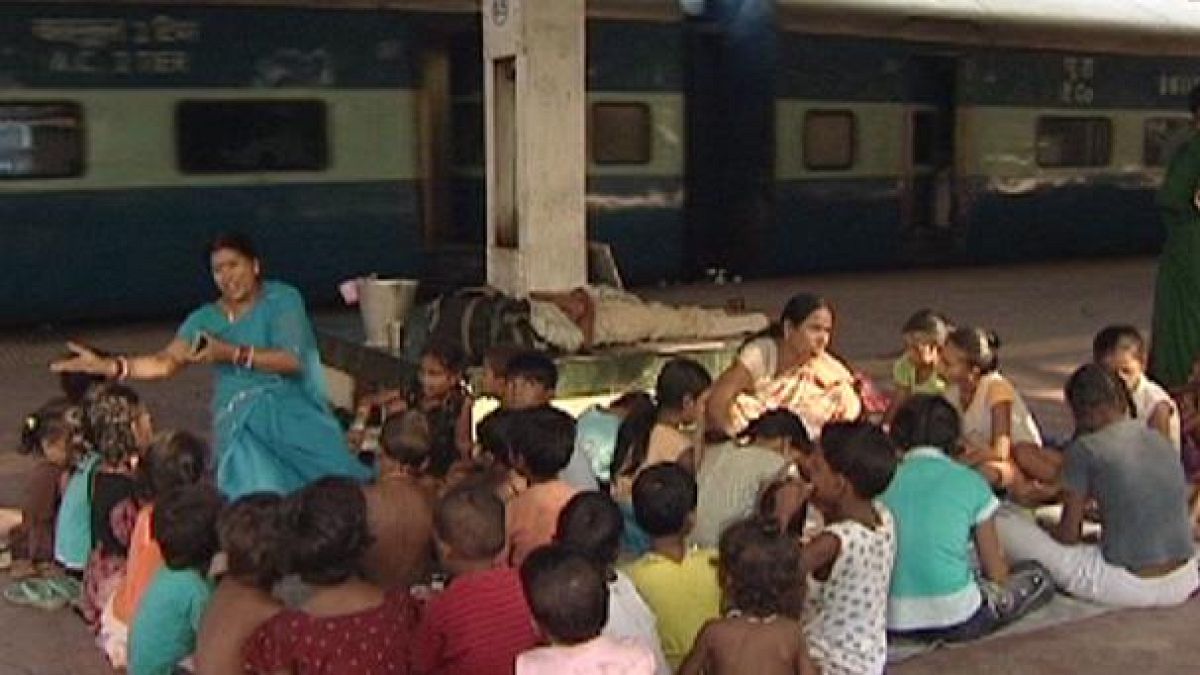Education is not restricted to the classroom. Across the world there are many children who cannot go to school, mainly because of poverty or family circumstances. But there is hope. In the Indian state of Orissa, children who scrape a living in railway stations have been given a rare chance to transform their lives. In Finland, children learn from their environments and in Africa, the Masai have a teacher who follows their migrations on a push bike.
Like many other stations, the railway station in Bhubaneswar is a world unto itself. Whole families live on the platforms. Children spend their days on the trains collecting rubbish, polishing shoes and begging. But 25 years ago one woman decided that all children should have the right to an education. So she set up the Platform School and now there are similar schools in 14 stations across the region.
Everyday, between 30 and 50 children gather on the platform for their lessons. They sing, they play and they learn. The Ruchika Social Service Organisation now runs Platform Schools in 14 stations across the region teaching around 500 children.
In Finland pupils are encouraged to explore the world beyond the classroom for a more enriching education in the natural world. That includes holding lessons outside in the woods. In Finland there are always woods nearby of course, even in the suburbs of Helsinki. The children chose a tree, measure it, study its leaves, map it and observe it. Back in the classroom, their findings are discussed and written down.
This is part of a scheme in which students use real world data collection to pursue group projects. Older students study environmental aspects such as air quality, noise levels, architecture, urban planning, and local history.
Finally in Tanzania some nomadic children now have the opportunity to get their education on the move thanks to an organisation called ‘Yes Development’.
The Masai tribe migrate following the seasonal rains, making it difficult to provide education for their children. But nearly 200 kilometres west of Dar es Salaam, they have come up with an innovative solution. The local NGO ‘Yes Development’ has opted for a mobile approach, using teachers recruited from the tribe who use bicycles to take their teaching materials wherever the Masai go.
The teachers also educate any adults who have missed out and want to catch up. Economic, social and cultural barriers combine to keep girls out of school. Early marriages, heavy domestic workloads and the long-held cultural belief that educated girls are more likely to run away from home are all barriers to female education. This project is currently educating around 300 nomadic children.
